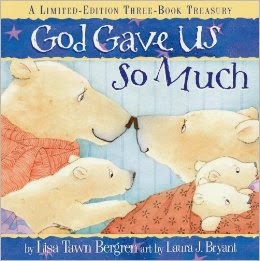A Review of Hope, Help and Healing for Eating Disorders
 I am certain that there are people scratching their heads thinking, “What is a guy doing reading a book for and about ladies struggling with eating disorders?” To be honest, the reason I am reading and thus reviewing it is that I understood very little about this problem afflicting so many people. As a pastor, husband, father and friend, I wanted to know more about this area that impacts so many people, including, perhaps, someone I love or with whom I have contact. Like many, I assumed that anorexia and bulimia were the extent of eating disorders and that bulimia involved a person eating too much and then hanging his/her head over the toilet to purge it. Not surprisingly, I found out there is much more too it.
I am certain that there are people scratching their heads thinking, “What is a guy doing reading a book for and about ladies struggling with eating disorders?” To be honest, the reason I am reading and thus reviewing it is that I understood very little about this problem afflicting so many people. As a pastor, husband, father and friend, I wanted to know more about this area that impacts so many people, including, perhaps, someone I love or with whom I have contact. Like many, I assumed that anorexia and bulimia were the extent of eating disorders and that bulimia involved a person eating too much and then hanging his/her head over the toilet to purge it. Not surprisingly, I found out there is much more too it.Through this book, I learned how much I didn’t know. For instance, there aren’t just eating disorders but disordered eating. Whenever we think of food as more than fuel or nutrition for the body, it is given a place that it doesn’t deserve in our lives. This is a problem that afflicts both sexes.
Bulimics purge beyond just the stereotypical vomiting. Whether it be laxatives, excessive exercise, diuretics, or bouts of starvation, the bulimic purges in any of multiple ways. I learned that bulimia and anorexia aren’t the root problem but the manifestation of that problem. “If love and acceptance were dished out sparingly or not at all when you were growing up, is it any wonder you chose food to fill up the real hunger you felt (p. 81)?”
Anorexics control their eating and thus fool themselves into thinking they control the real thing they fear. That is the issue that is being avoided. The very issue that needs to be revisited, explored and dealt with.
A person with an eating disorder who seeks help will often seek help with only the obvious problem. Perhaps they see their problem as the amount of weight gained and the stubbornness with permanently losing it. However, the root issue that is avoided and the resulting relationship with food are the keys to overcoming the symptom of obesity.
Another obstacle to overcome is pride. The person afflicted with an eating disorder may see herself as especially more disciplined than others with food. This pride blinds her from seeing that the behavior is abnormal and thus that she has a problem.
This only scratches the surface of the whole-person help that this book and its authors seek to provide. To really get a sense of it, get a copy of this book and read it. You may be surprised to see that your relationship with food is not what it should be and that you may be seeking comfort in food rather than fuel for the body. What are you avoiding and how can you be released from the pain in the past in order to be the man or woman God would have you to be?
Disclaimer: WaterBrook Multnomah provided me with a free review copy of this book. All opinions expressed are my own.
Check out my review of Jantz's Turning Your Down into Up, a book on a whole-person approach to depression


Comments
Post a Comment